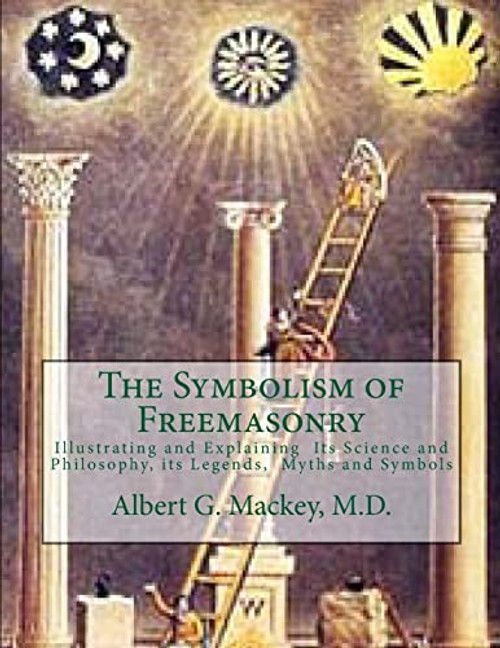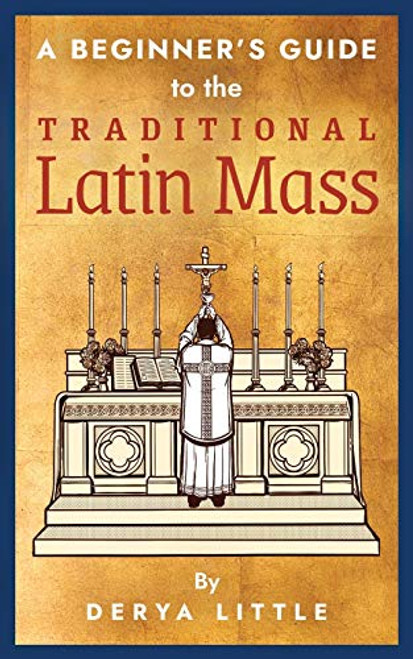The Christian liturgyand the Roman liturgy in particulardeveloped and thrived within a tradition of commentary and meditation that was fundamental for its understanding, running parallel with the same way of approaching Scripture. The rationalist influences that led to the decline and eventual rejection of the mystical or spiritual senses of Scripture in favor of a narrowly-conceived literal sense led to a narrowing of liturgy as well, which was reduced to its material parts and their various functions. While in recent decades the importance of the spiritual sense of Scripture has been reclaimed, its liturgical equivalent remains in shadow. The present book addresses this lacuna with an easy-to-understand summary of the traditional approach to the forest of symbols contained in the Roman Mass. The undertaking represented by this book is of capital importance We must learn to discover or rediscover the liturgy of the Holy Mass such as our Church has transmitted it, starting with an authentic allegorical or mystical explanation, which in a certain way forms the essence of each of our rites, in the same way that a trees sap, invisible beneath its bark, provides it with moisture and gives it life and growth.ROBERT CARDINAL SARAH, from the Foreword For almost a millennium, theologians saw in the Holy Mass an allegory of the life of Christ, a symbolic unfolding of the ages of the world, a pageant of mysteries. Under the withering chill of rationalism, this treasure-chest of meditation was first mocked, then forgotten. Fr. Barthe explains why we should recover the mystical interpretation of the Mass and then shows how it is done, reconnecting us with our forefathers in the Roman rite. A potent tonic to restore our lost memories!PETER A. KWASNIEWSKI, author of Reclaiming Our Roman Catholic Birthright Drawing on Amalarius of Metz, Innocent III, St. Thomas Aquinas, William Durandus, and Jean-Jacques Olier, among others, Abb Claude Barthe has synthesized the best insights from the tradition of the expositio Missaea genre of Mass commentary, focused on the mystical meaning of the rites, that flourished from the ninth century through the seventeenth. If the mystical meaning is to the Mass what the spiritual sense is to Sacred Scripture, then A Forest of Symbols reads like a liturgical lectio divina.URBAN HANNON, editor, The Josias Allegory is a classic method by which Christians have sought to achieve a deeper understanding and appreciation of the liturgys meaning, especially for the Eucharistic sacrifice. The liturgy is a collection of texts, chants, actions, and symbols that might rightly be considered a kind of sacred drama that points to ever deeper meanings. Fr. Barthes book aims to provide the reader with a revived allegorical approach to liturgy that is informed by the great allegorists of yesteryear alongside insights offered by more recent scholarship and commentary.SHAWN TRIBE, editor, Liturgical Arts Journal In this highly accessible commentary, Abb Claude Barthe leads us in this essential spiritual reflection on the mystical qualities of the Holy Sacrifice of the Mass. From the preparation of the altar to the end of the Last Gospel, each aspect of the Mass is examined with reference to the Bible, the Fathers, and the Catholic tradition, with the allegorical meaning of even the smallest ritual details explained. In an age disfigured by scientism, literalism, and rationalism, in which the corrosive idea that liturgy is manufactured seems so pervasive, Abb Barthes work is a sure guide through the glorious forest of symbols given us in the traditional liturgy, and provides an excellent way for us to rediscover the spiritual power and beauty of the Mass in our lives.MATTHEW HAZELL, scholar of comparative liturgics
A Forest of Symbols: The Traditional Mass and Its Meaning
MSRP:
Was:
Now:
$23.83 - $26.88
(You save
)
(No reviews yet)
Write a Review

Write a Review

A Forest of Symbols: The Traditional Mass and Its Meaning
- SKU:
- UPC:
- 9781621389163
- Maximum Purchase:
- 2 units
- Binding:
- Paperback
- Publication Date:
- 4/1/2023
- Author:
- Barthe, Abb Claude
- Language:
- English: Published; English: Original Language; English
- Pages:
- 194

The Atonement: Its Meaning and Significance
MSRP:
Was:
Now:
$14.66 - $31.26

The Mass: The Glory, the Mystery, the Tradition
MSRP:
Was:
Now:
$24.38 - $35.51

Createspace Independent Publishing Platform
The Symbolism of Freemasonry: Illustrating and Explaining Its Science and Philosophy, its Legends, Myths and Symbols
MSRP:
Was:
Now:
$15.43 - $17.39

Shambhala
The Art of Buddhism: An Introduction to Its History and Meaning
MSRP:
Was:
Now:
$13.13 - $38.98

George Michell
The Hindu Temple: An Introduction to Its Meaning and Forms
MSRP:
Was:
Now:
$12.46 - $44.75
!




